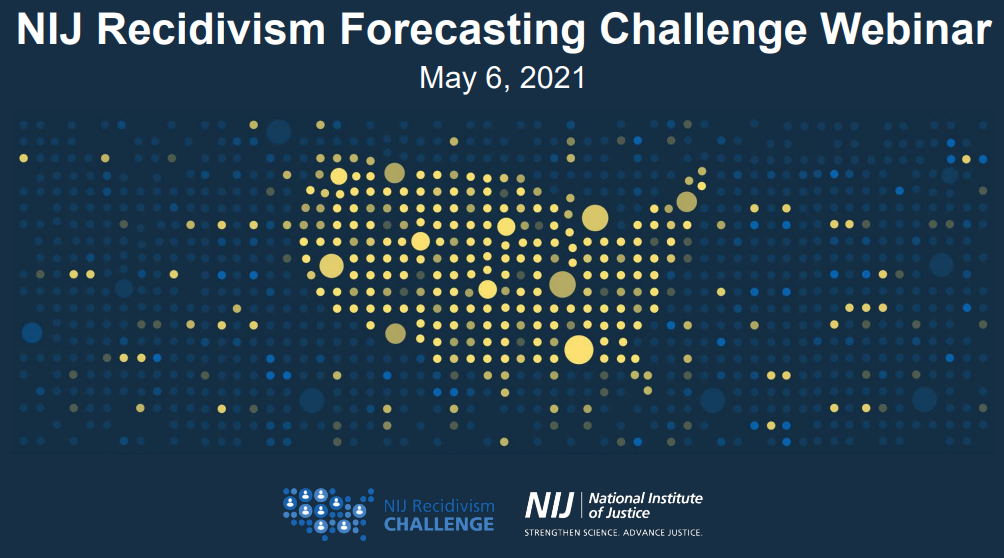Supervised release
Sentinel Event Review of Federal Reentry Program
Best Practices for Improving the Use of Criminal Justice Risk Assessments: Insights from the National Institute of Justice’s 2021 Recidivism Forecasting Challenge Winners Symposium
Mismatches and criminal justice policy: The case of GPS for domestic violence
A Mixed-Method Examination of the Effectiveness of Money Bail and other Pretrial Release Options
Evaluation of the Field Test of Supervised Pretrial Release Final Report
Learning from Doing Evaluating the Effectiveness of the Second Chance Act Grant Program
Reauthorized in 2018, the Second Chance Act (SCA) aims to reduce recidivism and improve outcomes for people returning from state and federal prisons, local jails, and juvenile facilities through the provision of federal grants. During this panel, National Institute of Justice-funded researchers will detail two ongoing evaluations of the SCA grant program:
- An evaluation of the effectiveness of the SCA grant program per Title V of the First Step Act.
- A longitudinal examination of the long-term impacts of the SCA program.
See the YouTube Terms of Service and Google Privacy Policy
A Process and Impact Evaluation of Illinois' Policy to Eliminate Cash Bail and Reform Pretrial Practices
NIJ Recidivism Forecasting Challenge Webinar Transcript
Challenge has closed
Thank you to everyone who submitted an entry. Winners will be notified by August 16, 2021, and posted online.
Winners are to submit paper outlining the variables that were tested, indicating which were of statistical significance and which were not, by September 17, 2021.
DARYL FOX: Good afternoon, everyone. Welcome to today's webinar. NIJ's Recidivism Forecasting Challenge, hosted...
Assessing the Effects of Exposure to Supermax Confinement on Offender Postrelease Behaviors
Making Electronic Supervision Work
Exemplary Projects - Focus for 1982 - Projects To Combat Violent Crime
Evaluation of Two Models of Treating Sentenced Federal Drug Offenders in the Community
Drug Tests and the Prediction of Pretrial Misconduct: Findings and Policy Issues
Evaluation of Day Reporting Centers for Parolees Outcomes of a Randomized Trial
Dual Experiment in Intensive Community Supervision: Minnesota's Prison Diversion and Enhanced Supervised Release Programs
Lessons Learned From SVORI: Program Director Perspectives on Implementing Reentry Programming
Effectiveness of Supervised Pretrial Release
State Responses to Mass Incarceration
Researchers have devoted considerable attention to mass incarceration, specifically its magnitude, costs, and collateral consequences. In the face of economic constraints, strategies to reduce correctional populations while maintaining public safety are becoming a fiscal necessity. This panel will present strategies that states have undertaken to reduce incarceration rates while balancing taxpayer costs with ensuring public safety.
See the YouTube Terms of Service and Google Privacy Policy
Evaluating Reentry Programs Using Data and Science
How do you use data and science to measure program success?
John Wetzel, secretary of corrections, Pennsylvania Department of Corrections and Grant Duwe, Ph.D., director of research and evaluation, Minnesota Department of Corrections explain how their agencies evaluate programs using data and science. Duwe details how the most effective programs provided by the Minnesota DOC have been those that focus on known risk factors for recidivism.
See the YouTube Terms of Service and Google Privacy Policy
Going Home (or Not): How Residential Change Might Help the Formerly Incarcerated Stay Out of Prison
Dr. Kirk discusses how Hurricane Katrina affected those formerly incarcerated persons originally from New Orleans and their likelihood of returning to prison. Kirk also discussed potential strategies for fostering residential change among those who were incarcerated, focusing specifically on parole residency policies and the provision of public housing vouchers.
See the YouTube Terms of Service and Google Privacy Policy



